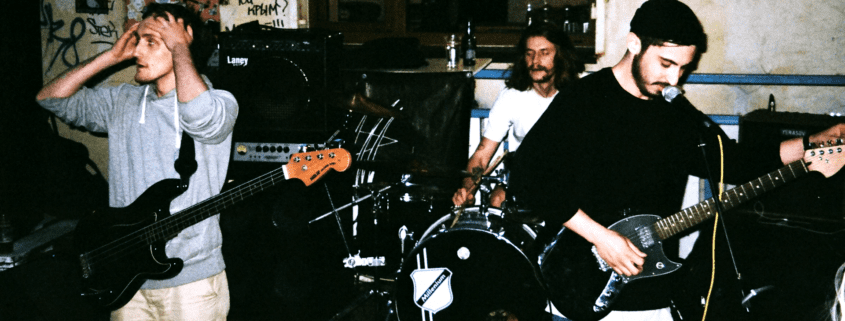ELEVATION
Why Artists Need More Than Just Gigs to Thrive
The Gigging Trap: For many musicians, gigging is the bread and butter of their career. It’s where they cut their teeth, build an audience, and earn their living. However, as essential as gigging is for developing an artist’s craft, there comes a point where it becomes a limiting factor rather than a stepping stone. The journey from consistent gigging to booking shows and larger events can feel like a daunting leap, but it’s necessary for any artist who wants to turn their passion into a sustainable, long-term career.
Gigging vs. Shows and Events
At the heart of this transition is understanding the difference between gigging and playing shows or events. Gigging generally refers to frequent, smaller performances—at bars, local venues, or restaurants—where the pay might be decent, but the ceiling for growth is low. These performances are often casual, and while they provide steady income, they rarely lead to big breaks or significant career advancement. Artists who rely solely on gigging can find themselves stuck in a cycle, playing the same venues to the same audiences without ever expanding their reach.
Shows and events, on the other hand, are larger and more strategic. They require planning, promotion, and often involve collaborations with other artists, promoters, or brands. These performances are designed to elevate an artist’s profile, bringing in new audiences, media attention, and often higher paychecks. Artists may hesitate at the idea of playing bigger shows because they seem out of reach, but the reality is that these opportunities are far more attainable than many realize. It’s simply a matter of shifting perspective and embracing the growth that comes with stepping outside the gigging comfort zone.
The Illusion of “Making a Living”
One common objection I hear from artists is, “I was already making a living gigging before I worked with management, so why should I change my approach?” This sentiment comes from a place of security—gigging is familiar, it pays the bills, and it feels like steady work. For artists, especially those who’ve been grinding for years, the idea of stepping into larger shows or events can feel unnecessary or even risky. But there’s a big difference between *making a living* and *making a career.*
Gigging provides immediate returns, but it also caps an artist’s potential. Yes, you can make a decent income gigging regularly, but the reach of those gigs is limited. You’re performing for smaller crowds, often at venues that don’t cater to long-term growth or media coverage. Management isn’t about taking away that stability—it’s about taking what’s working and building something more significant. Artists who embrace management services can move from survival mode—where they’re just getting by gigging—to thriving, where they’re playing shows that offer both exposure and financial stability.
The Role of Management: From Gigging to Greatness
The challenge many artists face when working with management is impatience. After years of booking gigs on their own or through a booker, they’ve developed expectations around quick results. When management doesn’t instantly deliver those familiar bookings, it can feel like the process isn’t working. But management’s role isn’t to continue the same cycle—it’s to elevate the artist beyond that.
Management focuses on long-term strategy rather than immediate results. Instead of booking more gigs, management aims to book *better* gigs that grow an artist’s audience, generate buzz, and build a sustainable career. The shift from booking smaller gigs to planning shows, events, and tours takes time, but it’s the kind of time investment that pays off in bigger ways. For artists stuck in the gigging mindset, it’s essential to understand that management is about scaling up, not just maintaining the status quo.
Overcoming the Gigging Mentality
The main reason artists resist this shift is fear. Gigging is comfortable. It’s what they know. But that comfort can quickly turn into stagnation. The truth is that moving from gigging to larger shows isn’t an impossible dream—it’s a natural progression. And many artists, even those who aren’t household names, are out there making a great living playing bigger events without sacrificing artistic integrity or stability.
Breaking out of the gigging mentality requires a few key changes:
- Mindset Shift: Understand that gigs, while necessary, are just the foundation. Artists must envision themselves beyond the next local bar show and start seeing the potential for bigger opportunities.
- Long-Term Vision: Management works toward growth, which takes time. There won’t always be instant results, but the payoff comes with shows that matter, larger audiences, and more income in the long run.
- Strategic Booking: Instead of trying to play as many gigs as possible, focus on booking quality shows and events that expose you to new fans, media coverage, and potential sponsors or partnerships.
- Support: Management helps guide artists through this transition, providing structure and strategic thinking that artists may not have developed on their own. That support, combined with the artist’s hard work, leads to greater success.
From Making a Living to Making a Legacy
Every successful artist starts somewhere, and for most, gigging is the natural entry point. But the ones who reach true career heights—whether it’s headlining tours, selling out shows, or collaborating with other big names—are those who embrace the uncomfortable transition from regular gigs to something more. Gigging provides the foundation, but management is the key to growth.
So while making a living from gigs is admirable, there’s a bigger picture to consider. It’s not just about playing more shows; it’s about playing the right shows—the ones that push your career forward, bring in new opportunities, and help you build a lasting legacy. Management isn’t about delivering quick results; it’s about laying the groundwork for long-term success. If you want to move from surviving off gigs to thriving in a sustainable, dynamic career, management is the tool that makes that possible.
Success is more than just making ends meet—it’s about aiming higher, reaching larger audiences, and building a future that goes beyond the next gig.
Why Artists Need More Than Just Gigs to Thrive




Leave a Reply
Want to join the discussion?Feel free to contribute!